Reicha, A :: Twenty Four Trios Opus 82 - Volume 1
-
ComposerReicha, A
-
InstrumentationWoodwind Trio
-
PublisherMusicians Publications [WT142]
-
EditorHolcombe Jr, Bill (arr)
-
Orchestrationfl, ob, bsn; fl, cl, bs cl
-
Includes CD or Audio DownloadNo
-
ClassificationNot Applicable
-
GenreUndefined
Reicha, A
Musicians Publications presents Anton Reicha's Opus 82 in Twenty Four Trios arranged for flexible woodwind trio by Bill Holcombe Jr. This third volume contains trios 1-6. This arrangement includes a plethora of woodwind parts that are interchangeable depending on the instrumentation available. The score is divided into 3 voices, with the lowest voice in both bass and treble clef. Voice 1 parts include flute, oboe, and clarinet; upper voice 2 parts include flute, oboe, and B-flat clarinet; and voice 3 parts include clarinet, bass clarinet, or bassoon. The many different options in performance make this the perfect medley for a gigging group!
Antoine Reicha was a French composer and theorist whose career spanned the late eighteenth and early nineteenth centuries. While his music for woodwind quintet is well known, he was also an opera composer and the author of several important texts on music theory. In terms of his place historically, Reicha was not only a contemporary of Beethoven, but also the one-time teacher of Berlioz and Liszt.
Reicha's earliest training was with his uncle Josef Reicha, and he later studied music in Bonn and Hamburg. When he moved to Vienna in 1801, Reicha studied with Albrechtsberger and also made the acquaintance of the elderly Joseph Haydn and other important members of the musical community in that city. While in Vienna, Reicha composed a number of fugues for the keyboard and a large amount of chamber music. It was only when Reicha moved to Paris in 1808 that he worked on music of a larger scale. Here he attempted to establish himself as a composer of opera. Of his three surviving completed operas, though, only one achieved any degree of success. That opera, Sappho, was written in 1822.
Nevertheless, by that time Reicha had a reputation as an excellent teacher of composition, and in this capacity he was respected by most of the musicians of his day. His treatise on composition (Cours de composition musicale [1818]) became a standard text in the nineteenth century, and his Traite de haute composition musicale (1826) was one of the most important works of its kind in the nineteenth century. Reicha's Art du compositeur dramatique (1833) is a manual for composers of opera and is important for its insights into the approach to the form.
Reicha's musical style is relatively conservative and formal. His chamber music, for which he is best known, was written in the second decade of the nineteenth century. It sounds, however, more like eighteenth century music. Nevertheless, the works are strong melodically and quite competent in structure.
- James Zychowicz
-
ComposerReicha, A
-
InstrumentationWoodwind Trio
-
PublisherMusicians Publications [WT142]
-
EditorHolcombe Jr, Bill (arr)
-
Orchestrationfl, ob, bsn; fl, cl, bs cl
-
Includes CD or Audio DownloadNo
-
ClassificationNot Applicable
-
GenreUndefined
All online purchases greater than $200 (before tax) are eligible for free shipping within the US. (Some Exceptions apply.) Online purchases over $200 being shipped to locations outside the United States do not qualify for free shipping.
Items returned from a purchase utilizing the free shipping offer that brings the original invoice under $200 will result in the original shipping charge being re-applied.
Once shipment has reached its destination according to the shipping carrier tracking information selected, Carolyn Nussbaum Music Company is no longer responsible for the package.
*Please note that some items may vary slightly from the pictures on our website as manufacturers make changes to their products.
We accept Visa, Mastercard, and Discover for online purchases up to $10,000.
You may also assemble your order online and pay offline using the "Offline Payment" payment method during the checkout process. In this case, once you submit your order, you will be contacted via phone or email for payment details before your order is processed. For offline orders we accept personal checks, bank checks, money orders, or travelers checks, with other legal tender acceptable only per arrangement.


















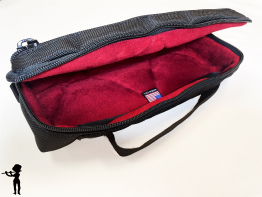


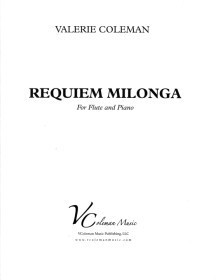


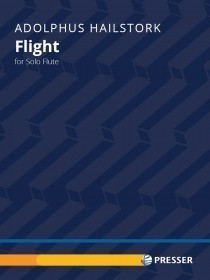


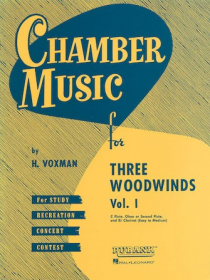




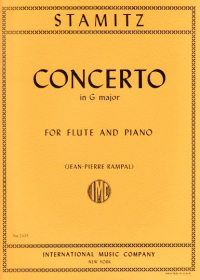

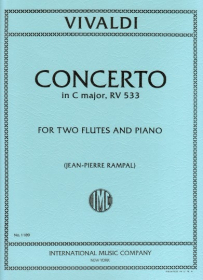
![Various :: Flotenmusik von Komponistinnen [Flute Music by Female Composers]](http://www.flute4u.com/var/images/product/262.280/P/D009790001141147_d.jpg)